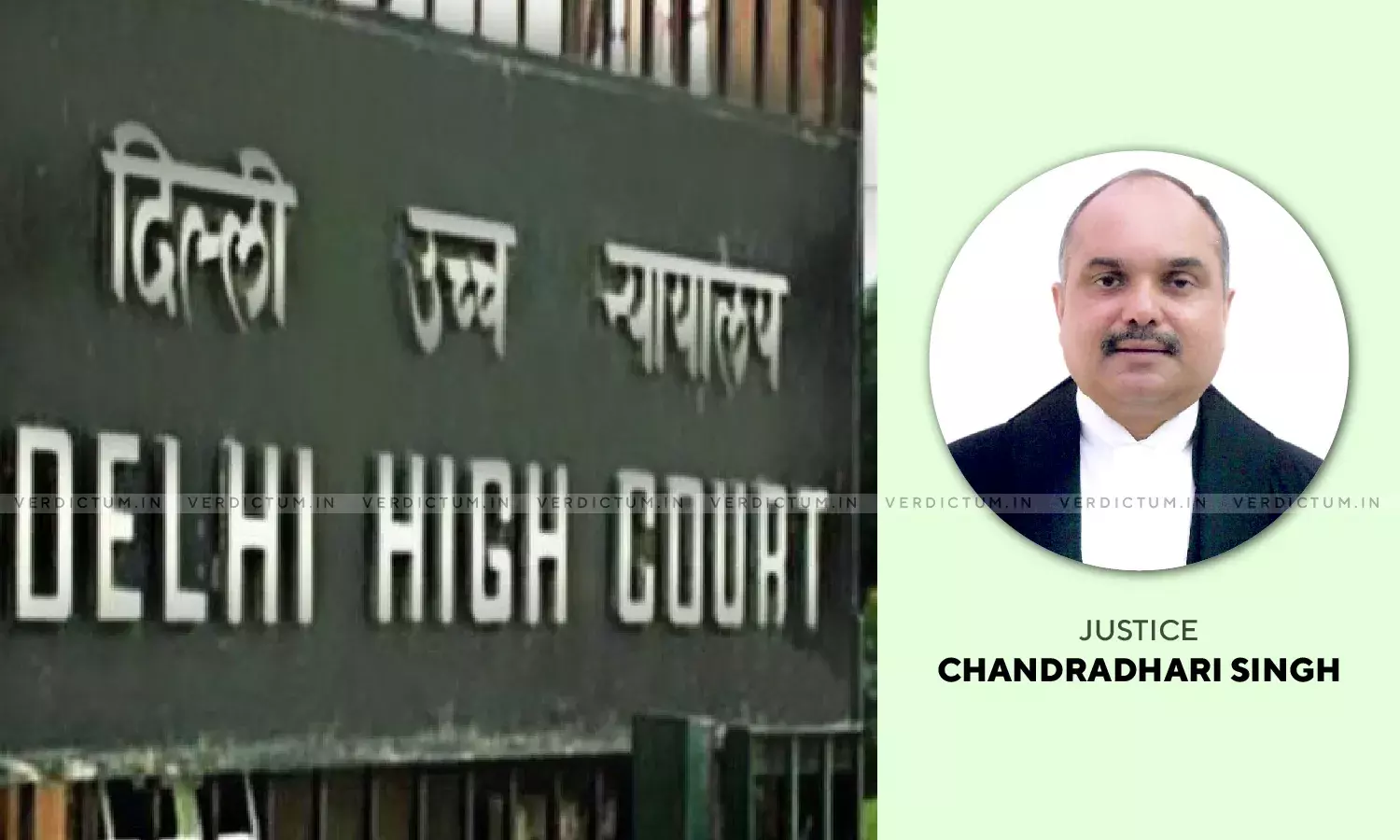"No Effective Delivery, No Mandatory Notice Served & Wrong Governing Law Applied"- Delhi HC Quashes Arbitral Award

A Delhi High Court Bench of Justice Chandra Dhari Singh has quashed and set aside an arbitral award on the basis of its observations that there was no effective delivery of the arbitral award to the petitioner, no mandatory notice under Section 21 of the Arbitration Act was given to the petitioner and the Arbitrator applied the Indian laws to adjudicate the dispute, as opposed to the UAE Federal Labour Law.
Senior Counsel Jayant Mehta appeared for the petitioner, while Senior Counsel Dhruv Mehta appeared for the respondent.
In this case, the petitioner was aggrieved by an ex-parte arbitral award which had been passed in favour of the respondent by a sole arbitrator. Subsequently, a petition was filed before the High Court and the Court framed four questions for consideration.
1) Whether the present petition under Section 34 of the Arbitration Act is barred by limitation?
The Court noted, "In the present case, it is not disputed that the impugned arbitral award was passed on 16th March 2015. But the Petitioner has vehemently disputed the receipt of the arbitral award on 23rd March 2015 which is alleged to have been sent by the learned Arbitrator. The Arbitration Act in Para 4(v) of the Statement of Objects and Reasons states one of the most important objectives which is the need “to minimize the supervisory role of courts in the arbitral process”. Section 5 of the Arbitration Act is in the nature of injunction to the Courts and clearly defines the scope of judicial intervention in an Arbitration proceeding".
Placing reliance on the case of Mahindra & Mahindra Financial Services Ltd. vs. Maheshbhai Tinabhai Rathod & Ors, the Court clearly observed that it did not have the power to condone any delay which exceeds the statutory time limit prescribed under Section 34(3) of the Arbitration Act.
2) Whether notice under Section 21 of the Arbitration Act was given to the Petitioner? If not, can the entire arbitral proceedings be set aside on this account?
Placing reliance on the case of Shriram Transport Finance Co. Ltd. vs. Shri Narendra Singh, the Court reaffirmed that compliance with Section 21 is mandatory in nature and not a matter of choice.
Subsequently, it was observed that "this Court is unable to find any documentary evidence on record to satisfy its conscience that this notice was ever served upon the Petitioner, by post or by email, as only speed post receipts evidencing delivery to the Respondent herein have been brought on record."
Therefore, it was held that "a proper notice under Section 21 of the Arbitration Act was not served upon the Petitioner and the dictum of Shriram Transport (supra) is fully applicable to the facts and circumstances of the present case."
3) Whether the impugned arbitral award is liable to be set aside on the ground that the Arbitrator has wrongly applied the Indian law as the substantive/governing law of the Contract?
The Court placed reliance on the case of Enka Insaat Ve Sanayi AS vs. OOO Insurance Company Chubb, and proceeded to observe that "In international commercial arbitrations, it is a well-established rule that if the parties opt to have the arbitration's seat in a specific nation, that nation's rules governing arbitration proceedings will take effect and its courts will have supervisory jurisdiction over the arbitration."
Subsequently, it was held that "the Arbitrator has grossly erred in applying Indian laws to govern and adjudicate upon the disputes arising between the parties even when there was a specific agreement to the effect that the Employment Agreement will be governed by the UAE Federal Labour Law."
4) Whether the impugned arbitral award is liable to be set aside under 34(2)(a)(ii) of the Arbitration Act on the ground that there was no privity of contract between the Petitioner and M/s CL EDUCATE Ltd., as the Employment Agreement was between the Petitioner and CEITI?
The Court noted that it was necessary to analyse whether the "Group of Companies" doctrine would be attracted to the facts and circumstances of the present case to justify the arbitration proceedings between M/s CL Educate Ltd. and the Petitioner.
After analysing a catena of judgments including a dictum given by the Supreme Court in the case of Cox and Kings Limited vs. SAP India Pvt. Ltd, the High Court concluded that "as a matter of utmost judicial propriety, as the larger bench of the Hon'ble Supreme Court is seized of the issue at hand, this Court is not inclined to render any judicial finding on the issue of application of the Doctrine of Group of Companies in the facts and circumstances of the present case. It is also to be noted that findings on this issue do not tilt the conclusion which is reached in the present case on the findings already recorded on the other issues."
Accordingly, owing to the findings of the Court, the impugned arbitral award was quashed and set aside.
Cause Title: Monika Oli v. CL Educate Limited
Click here to read/download the Judgment

